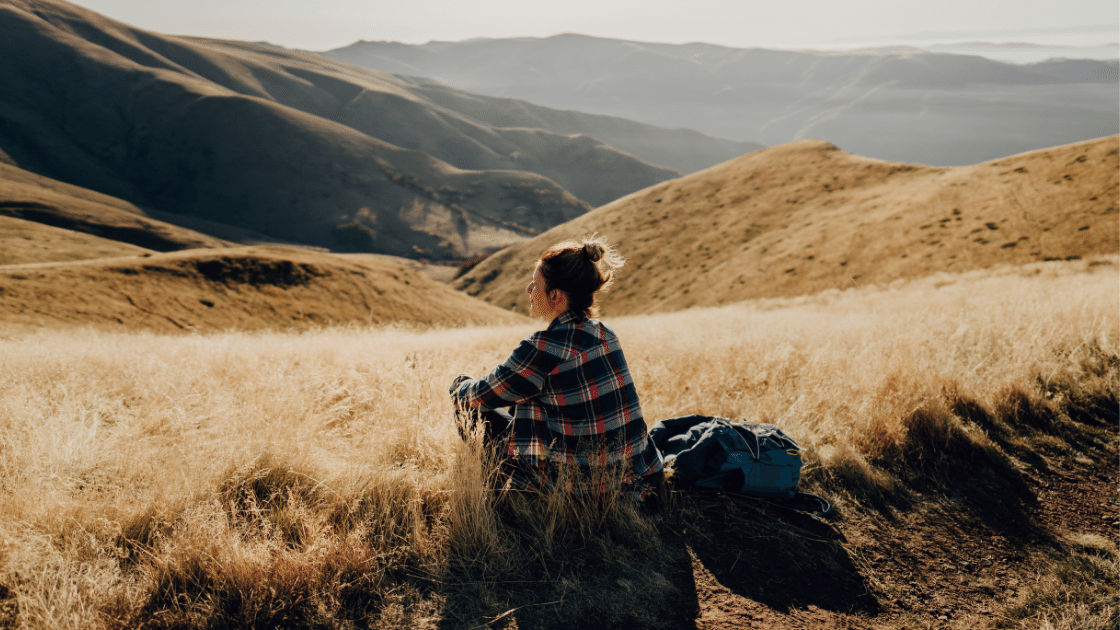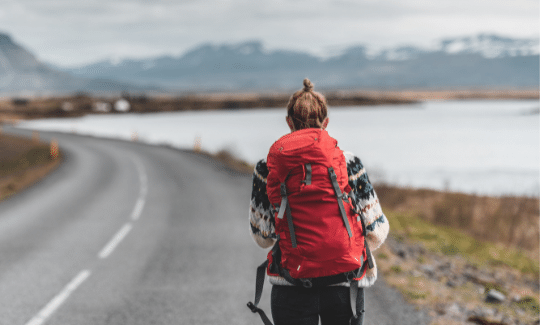Solo Hiking: Essential Tips and Tricks
There are many benefits to hiking alone. You can immerse yourself more deeply in the wild, enjoy the silence and solitude, learn to rely on your own skills to succeed.
Reaching the end of the road by yourself and with no help but your own two legs is an incredibly rewarding experience, and one worth trying.
But hiking alone also comes with its own set of difficulties and challenges.
To help you prepare for a solo hike, here are a few tips to remember when you’re alone in the Great Outdoors!
Safety is key!
Solo hiking is about relying on your own skills to get you from A to B, but that also means that there might not be anyone there to help you if things go sideways.
Because of this, safety must be your primary concern.
Make sure you hand a detailed plan of your itinerary to someone trustworthy, and that you give daily updates on your location, if possible.
For very remote areas, you might want to consider a satellite communicator, such as the Garmin inReach Mini. This device allows you to send messages to friends and family via satellite, so it is not dependant on phone reception. It is also connected 24/7 to an emergency response coordination center that can quickly notify first responders in your area. It also periodically tracks your location, so that you can be rescued even when lost.
It’s an expensive piece of gear and requires a paid subscription, but it is essential for solo hiking in remote locations.
Don’t bite more than you can chew. Research the trail you want to hike and make sure you’re up to the challenge. If it seems too difficult or risky then choose a different one.
You must also pay extra attention on the road. Even small injuries can quickly become serious if untreated, so deal with them immediately.
A first aid kit and a knowledge of basic first aid techniques are absolutely essential. Make sure you know how to treat cuts, bruises, blisters and other small injuries, as well as how to react to major ones such as broken bones.
Be careful and prepared when solo hiking in areas with dangerous fauna, such as bears, cougars and wolves. These animals are less likely to target groups, so being alone puts you at greater risk of an unwanted meeting.
Wear sturdy footwear with good ankle support to reduce your chances of injury. A pair of trekking poles can also help you with balance and support.
Don’t take unnecessary risks. When out on your own, you have to deal with whatever situation comes up, from blocked paths, to strangers on the road and animal encounters. Always stay alert, and if something doesn’t look right avoid it or turn back.
Planning
Good planning is key to a successful solo hiking trip. The better you plan, the less likely it will be that you’ll run into trouble.
Study a map of the area to set an itinerary. Identify good locations to stop for the night if you’re planning on camping, and mark landmarks and obstacles that could be challenging.
Calculate the distance you’ll cover and your average speed to have an idea of how long you’ll be on the road. This way you can also let family and friends know when you should be back, and that they need to look for you if you’re not.
Don’t overpack, as it will all be on you with no one to share the burden. Only bring the strict necessary for your trip, and make sure you’re familiar with all the gear.
Bring enough food, with some to spare. You won’t be able to share or get anything to eat from anyone else.
Entertainment
One of the best parts of solo hiking is the amazing peace and quiet you’ll find in the wilderness.
After a while though, the incredible silence and lack of human contact can get to your head. You might start feeling bored, paranoid or nervous. Or there might be days where you wake up and simply do not feel like crawling out of your tent.
These mood swings can be risky, as they take your focus away from what’s around you.
In these situations it’s good to have something to distract yourself, such as a game, a movie or music. Something that can take your mind off the silence and keep you busy.
Bring a pair of earphones, so that you can listen to music and podcasts while in your tent. Avoid using them while hiking though, it’s better and safer to focus completely on your surroundings.
Some tasty snacks can also be great to lift your mood! Carry some chocolate or candy for special occasions or if you need a morale boost.
Solo hiking is an amazing experience and a real must for any outdoor enthusiast.
It’s a good way to test your limits and learn how to rely on your own skills and knowledge without any outside help. And once you cross that finish line, the success will be entirely yours!
All you need is willpower, a little extra planning and gear, and soon you’ll be able to take on the wilderness in a completely new way!
𝘿𝙞𝙙 𝙮𝙤𝙪 𝙚𝙣𝙟𝙤𝙮 𝙩𝙝𝙞𝙨 𝙖𝙧𝙩𝙞𝙘𝙡𝙚 ?
𝘠𝘰𝘶 𝘤𝘢𝘯 𝘴𝘢𝘷𝘦 𝘰𝘳 𝘱𝘪𝘯 𝘵𝘩𝘪𝘴 𝘪𝘮𝘢𝘨𝘦 𝘴𝘰 𝘵𝘩𝘢𝘵 𝘺𝘰𝘶 𝘤𝘢𝘯 𝘢𝘭𝘸𝘢𝘺𝘴 𝘭𝘰𝘰𝘬 𝘣𝘢𝘤𝘬 𝘰𝘯 𝘵𝘩𝘦𝘴𝘦 𝘵𝘪𝘱𝘴 !
I’ll see you on the road and until next time this is Luca, signing off.











The LayOn Travel Neck Pillow is a comfortable travel accessory that comes with a series of cleverly designed features. It is an inflatable pillow, which allows it to fold down to pocket size and removes the hassle of having to make space to stash it in your bag!